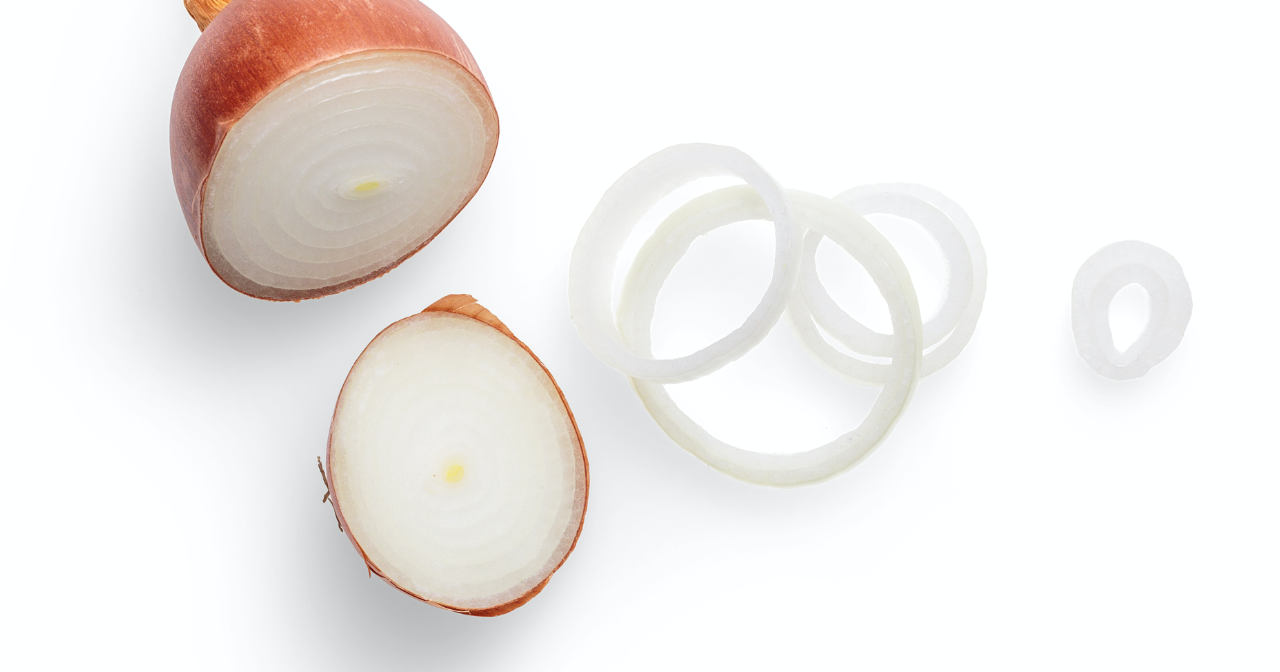Listen on: Apple Podcasts | Spotify
N-Acetylcysteine (NAC) is one of those supplements many people have heard of, but few understand. From supporting immune function to detoxification, and healthy mood to inflammation, NAC provides numerous health benefits.
N-acetylcysteine is an amino acid found in onions and eggs. Like l-theanine, it’s considered a non-proteinogenic amino acid, meaning it does not directly affect tissue growth and repair. Nonetheless, it plays a role in numerous other aspects of a healthy metabolism.
Doctors have used NAC to treat acetaminophen overdose for more than 30 years, but more recently, it’s been studied as a dietary supplement to support:
- sinus and respiratory health
- liver detoxification
- healthy inflammation levels
- antioxidant capacity
- normal blood sugar
Health Benefits of N-Acetylcysteine (NAC)
N-acetylcysteine is used as both a nutritional supplement and medical therapy. With any medical condition, it’s essential to talk with your physician before introducing any nutritional supplement. If you have any of the health concerns described below, talk with him or her to see if NAC could help.
Respiratory health and breakdown of mucus
NAC is a natural expectorant. It breaks the disulfide bonds in mucus, softening it and making it easier to cough up and eliminate. As a result, it may support the immune system in eliminating respiratory illnesses like the common cold.
Doctors also use NAC when working with chronic obstructive pulmonary disease (COPD), cystic fibrosis, and respiratory tract infections.
Detoxification
Glutathione plays an essential role in phase II detoxification. Because N-acetylcysteine helps rebuild glutathione, it helps ensure you maintain sufficient levels for proper detoxification.
Of course, you also need to make good lifestyle choices and eat an appropriate diet to support detoxification.
N-acetylcysteine is also used to support the detoxification of heavy metals.
Healthy mood and mental wellbeing
N-acetylcysteine helps regulate glutamate, which affects mood and addictive behaviors and obsessive thoughts. When the glutamate levels rise and glutathione levels fall, it can lead to brain damage.
Animal research shows NAC supplementation may slow the progression of neurodegenerative diseases like Alzheimer’s disease.
A study of more than 500 people showed that NAC supplementation improved symptoms of depression, and another study with almost 800 participants showed it reduced symptoms of bipolar disorder.
Research participants with obsessive-compulsive disorder took 2400-3000 mg per day of NAC and experienced fewer symptoms.
In another study, supplementation with NAC reduced symptoms of trichotillomania, the habit of pulling one’s hair. About 1% of the adult population suffers from this addiction.
NAC may also reduce withdrawal symptoms when abstaining from alcohol and certain drugs, and according to animal research, could also reduce binge eating.
Immune function
Research shows NAC breaks down bacterial biofilms. Bacteria produce a slimy substance that allows them to stick. By breaking down the biofilm, the bacteria don’t have a place to stay and multiply.
In a six-month study, 262 people took either a placebo or 600 mg of NAC twice daily. Those who took the NAC experienced fewer flu episodes, less severe cases when they got it, and fewer days in bed when they got sick.
In a paper published in Future Microbiology, Jorge-Aarón and Rosa-Ester recommend a daily dose of 600 mg of N-acetylcysteine to reduce the risk of COVID-19.
N-acetylcysteine may also support the immune system’s T-cell response.
Digestive health
N-acetylcysteine supports a healthy digestive system through its effect on inflammation.
Researchers tested the effect of orally consumed NAC on animals and found that it supported normal intestinal inflammatory levels while enhancing the gut’s healing and reducing intestinal permeability.
When your gut becomes permeable, it allows pathogens and food particles to enter the bloodstream, which then triggers an immune response. When food particles get into the bloodstream, it could also lead to the development of food sensitivities.
Blood sugar and insulin sensitivity
NAC may enhance insulin sensitivity. The more sensitive you are to insulin, the easier it is to maintain healthy blood sugar levels.
That said, if you’re serious about keeping your blood sugar in check, you need to follow a well-designed strength training program, and eat a higher-protein and lower-carb diet as well. You can’t consistently overwhelm your metabolism with excessive sugar and take a supplement in hopes it’ll save you.
Inflammation
We’ve repeatedly heard about the devastating effects of chronic, systemic inflammation. Chronic inflammation contributes to heart disease, neurodegenerative diseases, and raises the risk of severe complications from an illness like COVID-19.
NAC supports healthy inflammation levels by limiting the release of cytokines.
It may also relieve pain in some people through its effects on inflammation.
Antioxidant capacity
N-acetylcysteine acts as a direct and indirect antioxidant, neutralizing free radicals itself. It also helps rebuild glutathione, the body’s primary antioxidant.
Because the body uses NAC to build glutathione, some people wonder why you wouldn’t just supplement with glutathione. In healthy people, NAC supplementation increases glutathione levels better than taking glutathione directly.
NAC provides antioxidant support against the oxidative stress of blue light irrigation, fluoride exposure, H2O2, nitric oxide, lipopolysaccharides, and dental implants, making it a potent nutrient for oral health.
It also reduces the effects of sun damage to the skin.
Because of its effects as an antioxidant, some research suggests it could enhance longevity.
Read also: Antioxidants and Exercise: Whey They’re Not a Great Combination.
N-Acetylcysteine (NAC) Dosage and Usage
As a medication, N-acetylcysteine is sometimes inhaled or given intravenously.
NAC is a plain, white powder and is usually taken in capsule form as a dietary supplement.
For general health benefits and daily use, most people take 500-1000 mg per day. However, during certain seasons, they may double that amount to support immune function.
With a doctor’s supervision, some patients take much higher doses.
N-Acetylcysteine (NAC) Side Effects and Contraindications
Though doses as high as 6000 mg per day have been safely used in research, most studies use 2000-3600 mg per day per person. Single doses above 1200 mg may result in mild adverse events such as abdominal pain, constipation, diarrhea, headache, nausea, and vomiting.
N-acetylcysteine can increase nitroglycerin’s effectiveness, so patients on the medication should only use NAC when supervised by a physician. Combining the two may cause an unsafe drop in blood pressure.
As with all antioxidants, you can have too much of a good thing. Excessive antioxidant intake may reduce the power of your body’s antioxidant system. Excessive antioxidant intake may also compromise muscle growth.
Those who want to support their health by using NAC regularly should stick with lower doses of 500-1000 mg per day, and only increase their intake for short periods or when a doctor recommends it.
Summary
No supplement offsets the effects of poor diet and lifestyle choices, but no diet or lifestyle is so good that it won’t benefit from supplementation.
N-acetylcysteine is one such supplement. Provided you already take The Foundational Five consistently, you might consider adding NAC to your nutrition plan. That’s especially the case during seasons of the year when you need more immune support.

Feel Better Fast. Guaranteed.
Energy+, EDGE, and MentaBiotics make up the Happy Juice supplement stack, with ingredients clinically proven to:
- decrease anxiousness scores by 55%
- decrease irritability scores by 60%
- decrease fatigue by 64%
- decrease anger 54%
- decrease tension by 45%
- decrease confusion by 43%
- decrease overall distress by 49%
- increase good bacteria by 70%
- decrease negative mood by 105%
- increase positive mood by 211%



